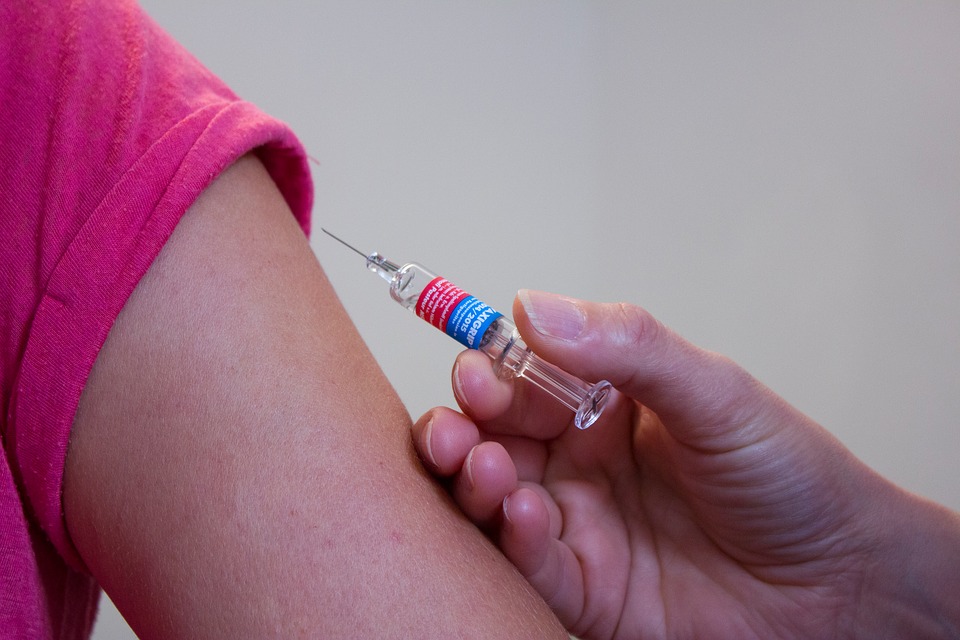ISIS’ conduct has forced the people working in the medical field to leave Deir-ez-Zor or quit their jobs. However, this is not the only reason for the deteriorating health situation. There are other factors such as the regime’s systematic practices, and medicine dealers’ exploitation of the chaos in absence of any checks and regulations.
According to a pharmacist who recently left his job, there are currently 12 warehouses that sell pharmaceuticals in Deir-ez-Zor. These places, however, are to cover all the needs of the people living in war conditions, especially in the light of the recent developments at the Turkish borders, the travel ban imposed by ISIS in the areas under its control, and above all, the regime’s restrictive policies for this area over the past three years.
In general, vaccines are hard to find in the markets and hospitals, among the most important of which are infant vaccines and treatments for contagious diseases such as tuberculosis and others such as chronic hepatitis B and C, blood pressure, diabetes, asthma, and kidney diseases.
The absence of these medications can lead to mortalities. Another pharmacist, who has secretly worked with humanitarian organizations in Deir-ez-Zor, said that some of these drugs are available but at exorbitant prices.
According to a pharmaceutical importer, who is also a pharmacist in Deir-ez-Zor, in April of 2014 the regime placed a ban on pharmaceuticals entering the province. He spoke about his own experience of when the regime forces confiscated a large shipment of pharmaceuticals that he had imported with authorization form the Minister of Health.
The pharmacist stated that he purchased the same shipment again from Raqqa a year later. The regime only allows air transport of pharmaceutical supplies to the east, thus restricting their distribution to the areas under its control, while dealers in the countryside have to transport shipments from Damascus to Aleppo and on to Raqqa at high expenses and risks to their lives on a road that has recently been cut off.
According to many pharmacists and warehouse owners, before embarking on such an adventure that can end in the confiscation of their shipments, the dealers are blackmailed by the major warehouses to take bad or ineffective drugs, a condition imposed on all dealers who ask for medical supplies.
The Syrian regime ban coincided with Iraqi pharmaceuticals dealers overrunning the Syrian markets. The Iraqis purchased medical supplies at five times as much as the real prices, and then transported the pharmaceuticals to Baghdad and Basra. As a result, the warehouse owners and pharmacists of Deir-ez-Zor were forced to procure their pharmaceutical supplies from those exported to Iraq. For instance, hormone-based medications for women were purchased at extremely high prices.
In the past two years, pharmaceuticals from Turkey entered Raqqa and from there, major importers distributed them in the rest of the areas controlled by ISIS.
A chemist from Deir-ez-Zor, speaking on condition of anonymity, said that these importers made deals with Chinese and Indian companies to manufacture pharmaceuticals similar to the Syrian products. Turkey allows the import of those products – after collecting the customs fees – but restricts their sale inside its borders. This process stopped since the battles for al-Bab city began two and a half months ago.
Ever since ISIS expanded, doctors, pharmacists, and other workers in the humanitarian and relief aid organizations contributed to the import of medications for chronic diseases into the territories controlled by ISIS, even though they are banned from working there. In addition to those medications, they managed, through Red Crescent SARC, ACU and others, to supply infant vaccines from international organizations such as the UNICEF and the World Health Organization.
Most recently, they managed to provide Rubella vaccines which were imported in June of last year. The vaccination campaigns met with much harassment from ISIS security members who forced the volunteers to provide information about their political orientations and the addresses of their relatives.
Members and supporters of the Islamic State organization used the vaccination campaigns to promote their cause as they considered it a kind of "empowerment," while others who refused to give their children the vaccine considered it absurd because "taking the medicine before getting sick makes people preoccupied with doubtful things and its results are illusionary.”
This article was translated and edited by The Syrian Observer. Responsibility for the information and views set out in this article lies entirely with the author.


